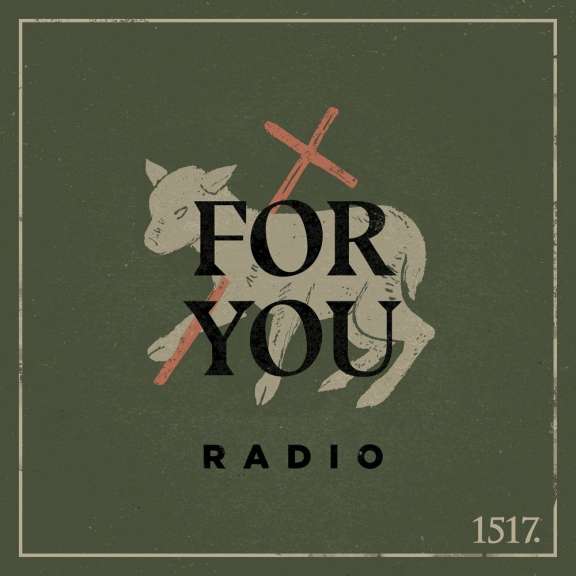Sit still; this won’t hurt... much. Gillespie and Riley continue to read and discuss Martin Luther’s Galatians commentary. This episode, active and passive righteousness.
Podcasts
Each 1517 Podcast is dedicated to delivering Christ-centered content through weekly, monthly, and seasonal audio platforms. Listen online or on your favorite podcasting app.
Author
- All Authors
- Aaron Zimmerman
- Adam Francisco
- Amy Mantravadi
- Blake Flattley
- Bob Hiller
- Bradley Gray
- Brian W. Thomas
- Bror Erickson
- Bruce Hillman
- Caleb Keith
- Chad Bird
- Chris Rosebrough
- Christopher Gillespie
- Cindy Koch
- Craig Donofrio
- Dan van Voorhis
- Daniel Deen
- Daniel Emery Price
- Darrin Sheek
- David Andersen
- David Rufner
- David Zahl
- Debi Winrich
- Delwyn Campbell
- Donavon Riley
- Doug Klembara
- Edward Killian
- Elyse Fitzpatrick
- Erick Sorensen
- Flame
- Grant Klembara
- Gretchen Ronnevik
- Haroldo Camacho
- Jacob Smith
- Jared C. Wilson
- Jeff Mallinson
- Jeffrey Pulse
- Jessica Thompson
- Jim Nestingen
- Joel Fitzpatrick
- Joel Hess
- John Andrew Schreiner
- John Bombaro
- John T. Pless
- John W. Hoyum
- John Warwick Montgomery
- Katie Koplin
- Kelsi Klembara
- Ken Sundet Jones
- Magnus Persson
- Matt Popovits
- Michael Berg
- Michael Horton
- Nick Lannon
- Paul Koch
- Peter Nafzger
- Philip Bartelt
- Raleigh Sadler
- RJ Grunewald
- Robert Kolb
- Rod Rosenbladt
- Ron Hodel
- Sam Leanza Ortiz
- Sarah Condon
- Sarah Crowder
- Scott Davis
- Scott Keith
- Steven Paulson
- Tanner Olson
- Troy Neujahr
- Uwe Siemon-Netto
- Wade Johnston
- William Cwirla
-
Big, fancy words and big, fancy ideas are thrown around, but what Craig and Troy try to simply say is that the Word of God turns us to Christ and not to ourselves. Where God's Word neither commands nor condemns, our lives and choices are free in the Gospel.
-
We know how reading God's Word can sometimes be confusing, but it doesn't have to be. Craig and Troy discuss how God uses the Word in our lives by both convicting us of our sin and delivering us the forgiveness of those same sins through Jesus Christ. Be sure to subscribe to this podcast and give us a great review on iTunes or wherever you get your podcasts! Email us: ForYouRadio@1517.org www.1517.org/foryou We're proud to be a podcast of 1517.org podcasts.
-
Alright. That’s it. No more Old Testament proofs for you. Gillespie and Riley continue to read and discuss Erasmus’ diatribe on Salvation and Free Will. This episode, how to squeeze free will out of the Old Testament.
-
Yeah, well, you know, that’s just, like, your opinion, man! Gillespie and Riley continue to read and discuss Erasmus’ diatribe on Free Will and Salvation. How does Erasmus read the Bible and how does his interpretation continue to influence the church today? How does Erasmus’ anthropology determine how the church continues to preach and teach Christian doctrine?
-
Yeah, well, you know, that’s just, like, your opinion, man! Gillespie and Riley continue to read and discuss Erasmus’ diatribe on Free Will and Salvation. How does Erasmus read the Bible and how does his interpretation continue to influence the church today? How does Erasmus’ anthropology determine how the church continues to preach and teach Christian doctrine?
-
Hey, careful, man, there’s a theologian here! Gillespie and Riley read and discuss Erasmus of Rotterdam’s discourse on The Freedom of The Will. In his debate with Martin Luther, how did Erasmus lose the battle but win the war over the doctrine of free will? How does it continue to influence the church today?
-
You’re not making Christianity better; you’re making Stoicism worse. Gillespie and Riley continue their discussion of free will and predestination by reading Clement of Alexandria. Where does the doctrine of free will originate? What happens when a Christian blends biblical theology and philosophy? Why doesn’t Riley like Star Wars sermons?
-
I thought we had something, but then you do and pull this. Gillespie and Riley read and discuss Iranaeus on free will and predestination. What part do Christians play in their salvation? Do we choose to sin? Who goes to hell?
-
Just Think of This As a Friendly Test That Could Get You Thrown into Hell, Or Not... Your Choice. Why do we demand that the choice be ours as regards our salvation or damnation? How does the doctrine of free will result in us hating God and each other? What about the influence of free will and predestination on popular culture?
-
The Only Wrong Choice Is to Not Make a Choice... Where does the belief in free will originate? Is free will a biblical doctrine? How does Justin’s teaching on free will and salvation still influence the church and western culture today?
-
Cheap Grace, a monument to compromise. Gillespie and Riley continue their conversation about Dietrich Bonhoeffer’s book, The Cost of Discipleship. This episode, more talk about grace, Nazis, and why the Gospel “but” is so important.

